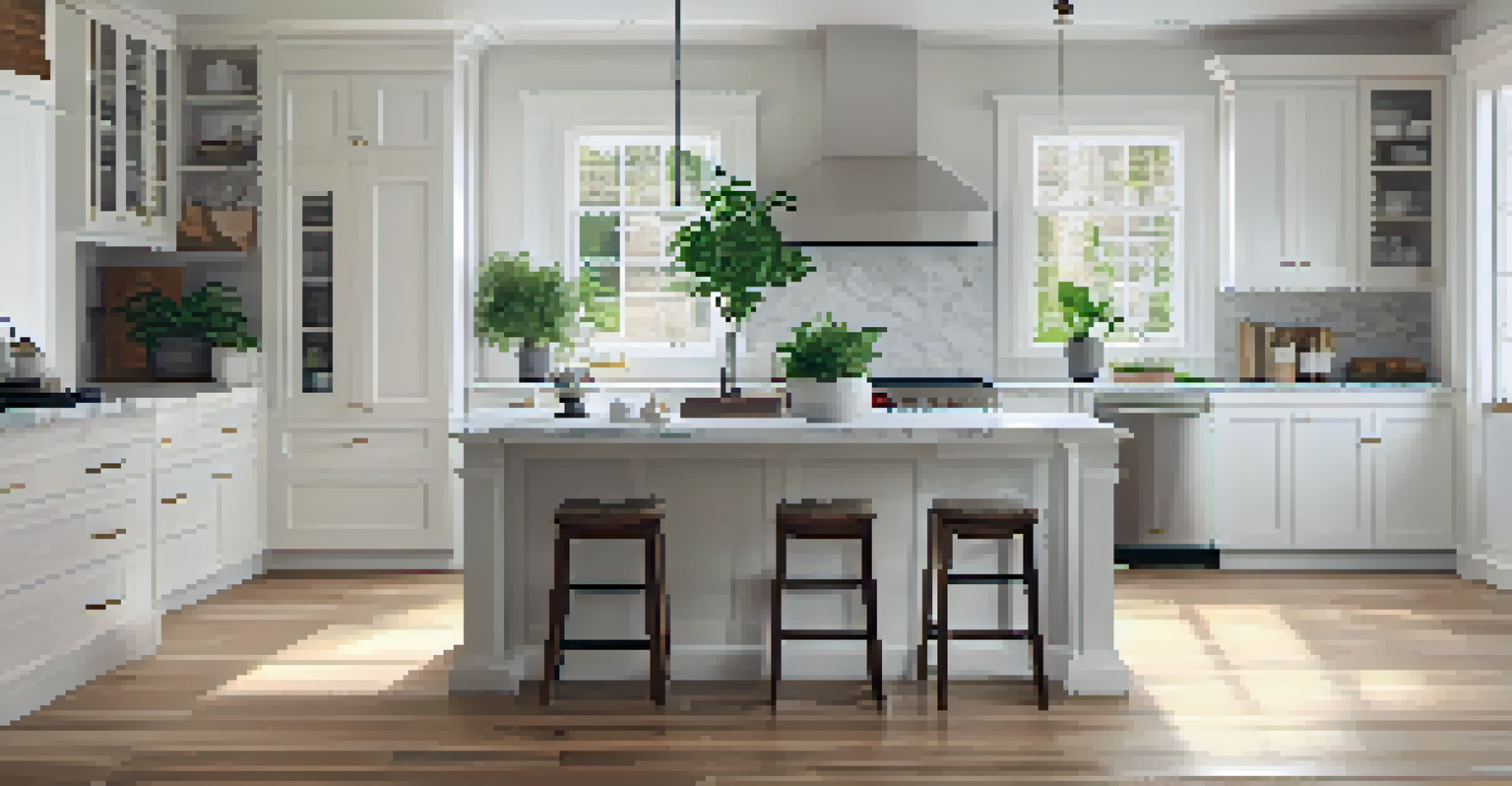How to Avoid Over-Renovating Your Home

Understand Your Home's Market Value Before Renovating
Before diving into any renovations, it's crucial to understand your home's current market value. Doing so allows you to assess how much you can realistically invest without overshooting its worth. For instance, if your home is valued at $300,000, a $100,000 renovation might not yield a proportional increase in value.
Before you renovate, it’s essential to understand your home's value. Spending more than it's worth can lead to financial pitfalls.
Consulting a real estate agent can provide insights into what improvements are most valuable in your area. They can help you identify which renovations offer the best return on investment. For example, kitchen and bathroom upgrades often have high returns, while extensive landscaping might not add as much value.
By grounding your renovation plans in market data, you can avoid making changes that will leave you with a home that's more expensive than the neighborhood can support. This understanding acts as a financial compass, guiding your decisions throughout the renovation process.
Create a Clear Budget and Stick to It
Setting a budget is one of the most important steps in any renovation project. A clear budget not only keeps your spending in check but also helps you make informed decisions about where to allocate your resources. Imagine budgeting as a roadmap; without it, you might find yourself lost in a maze of expenses.

As you create your budget, consider all potential costs, including materials, labor, and unexpected expenses. It's wise to include a contingency fund—typically about 10% of your total budget—to cover any surprises that may arise. This way, if a plumbing issue comes up, you won’t be forced to compromise on your original plans.
Know Your Home's Market Value
Understanding your home's market value helps guide your renovation decisions to ensure a worthwhile investment.
Sticking to your budget helps prevent the urge to add unnecessary upgrades that could lead to over-renovation. By focusing on what truly matters, you can create a space that feels personal and valuable without going overboard.
Assess Your Needs Versus Wants in Renovation
Before starting any renovation, it’s essential to differentiate between what you need and what you want. Needs are functional improvements, like fixing a leaky roof or updating old plumbing, while wants might include luxurious features like a walk-in closet or gourmet kitchen appliances. Understanding this distinction helps prioritize your renovation efforts.
Good design is a lot like clear thinking made visual.
For example, if your family is growing, adding an extra bedroom may be a need, while a fancy wine cellar could be a want. By focusing on needs first, you ensure that your home remains livable and functional, which is essential for your family's comfort.
Once the necessary renovations are complete, you can always revisit the wants later. This approach not only helps manage your budget but also ensures that you don’t get carried away with extravagant changes that don’t enhance your daily life.
Choose Timeless Styles Over Trendy Designs
When planning your renovations, it’s tempting to follow the latest design trends. However, trendy styles often have a short lifespan and can quickly become outdated. Instead, opt for timeless designs that can withstand the test of time, ensuring that your home remains stylish for years to come.
For example, while open floor plans are currently popular, they may not suit every household in the future. Choosing classic materials, like hardwood floors or neutral colors, can provide a versatile backdrop that complements various styles and tastes.
Set and Stick to a Budget
Creating a clear budget and accounting for unexpected costs is essential for keeping your renovation project on track.
By focusing on timeless choices, you not only create a more cohesive look in your home but also save money in the long run by avoiding the need for frequent renovations. This strategy helps you maintain your home's value while keeping it aesthetically pleasing.
Consult Professionals for Expert Advice
While DIY projects can be rewarding, they can also lead to costly mistakes if not done correctly. Consulting professionals, such as architects or interior designers, can provide valuable insights that you might overlook. Think of them as your renovation guide, helping you navigate the complexities of home improvement.
These experts can help you create a cohesive design plan that aligns with your needs and budget, while also adhering to local building codes. For instance, they can recommend the best materials for your climate or suggest layout changes that maximize your space.
Investing in professional advice may seem like an extra expense, but it often saves you money in the long run by preventing costly errors. By leveraging their expertise, you can ensure that your renovation is both efficient and effective.
Avoid Personalizing Your Home Too Much
While it's natural to want your home to reflect your personality, over-personalization can make it less appealing to future buyers. Unique design choices, like bold color schemes or custom-built features, may resonate with you now but could deter potential buyers down the road. Striking a balance is key.
Consider opting for a more neutral palette and classic designs that allow room for personal touches without overwhelming the space. For example, rather than painting a room a vibrant hue, you might choose to add colorful accents through decor or furniture, which can be easily changed.
Prioritize Needs Over Wants
Focusing on necessary improvements first ensures your home remains functional and comfortable for your family.
This approach not only keeps your home appealing to a broader audience but also makes it easier to transition when you decide to sell. Keeping your home relatable ensures that it remains a desirable property in the future.
Plan for Future Maintenance and Upgrades
As you embark on renovations, it’s essential to consider future maintenance and upgrades. Some materials, while aesthetically pleasing, may require more upkeep than you're willing to commit to. For instance, natural stone countertops can be stunning but often need regular sealing to maintain their beauty.
By choosing materials that are durable and low-maintenance, you can enjoy your renovations without the added stress of constant upkeep. This foresight can save you time, money, and headaches down the line, making your home more enjoyable.

Additionally, planning for future upgrades means you won’t feel the need to make drastic changes all at once. This strategy allows you to enjoy your newly renovated space while keeping an eye on what might come next, creating a sustainable living environment.